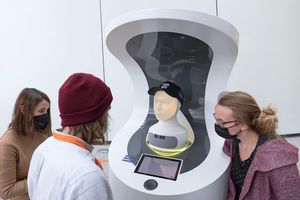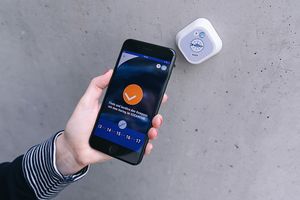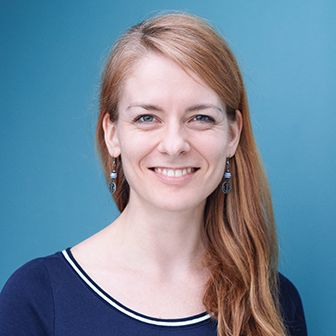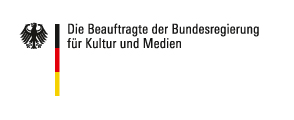Subproject in the network „museum4punkt0“
In February 2021, the sub-project "(Digital) MEER erleben" (freely translated into "Digitally more to SEA") started at the Ocean Museum Germany in the network "museum4punkt0 - Digital Strategies for the Museum of the Future". The network of museums of different sizes and orientations tested digital formats for new ways of learning, experiencing and participating. Museums throughout Germany are to benefit from the insights gained.
At the Ocean Museum Germany, the free app "Frag Walfred!" was created during the project phase in cooperation with the Viennese company "Fluxguide Ausstellungssysteme". It offers a digital companion at the OZEANEUM Stralsund with which guests can discover the museum in a variety of ways. "Porpoise Walfred is the mascot of the OZEANEUM and accompanies guests as an avatar in an amusing chat format. In search of virtual herrings, he guides them through the museum along digital spots," explains Anke Neumeister from the Ocean Museum Germany, who is responsible for the sub-project. In a daily updated overview, visitors can find all events, guided tours, feeding times and activities and can be notified in time via push alert. The application also helps with orientation with 360° views and maps of all floors of the museum. The app is suitable for the whole family and individual guests of all ages.
As part of a cooperation with the "SKILLED" project team of the Cologne University of Applied Sciences, the social robot ULI (User Language Interface) was tested at the OZEANEUM in March and May 2022. The field tests yielded important findings for further research. The AI-based system's ability to engage in small talk is a crucial aspect in implementing eye-to-eye conversation between humans and machines. Museum guests do not only see the system as a source of knowledge or service, the robot itself is also of interest. "We cannot and do not want to replace the care of museum guests by humans," says Anke Neumeister. "Rather, the aim was to determine how robots can support this with added value."
The Fraunhofer Institute for Photonic Microsystems in Dresden developed a demonstrator for ultrasound-based contactless interaction for the Ocean Museum Germany. It makes it possible to control a virtual penguin with hand movements. This collaboration demonstrated the feasibility of using novel applied research results in cultural institutions. "Until now, digital interaction capabilities in museums were mostly present in the form of touch screens. However, the Corona pandemic has shaped people's contact behaviour. Against this background, we wanted to explore potentials of touchless technologies such as gesture control in museums," explains Anke Neumeister.
The Minister of State for Culture and the Media has funded the collaborative project since 2017 and made it possible to continue and expand it to 27 sub-projects within the framework of NEUSTART KULTUR 2022. In total, the federal funding thus amounted to 30 million euros.



